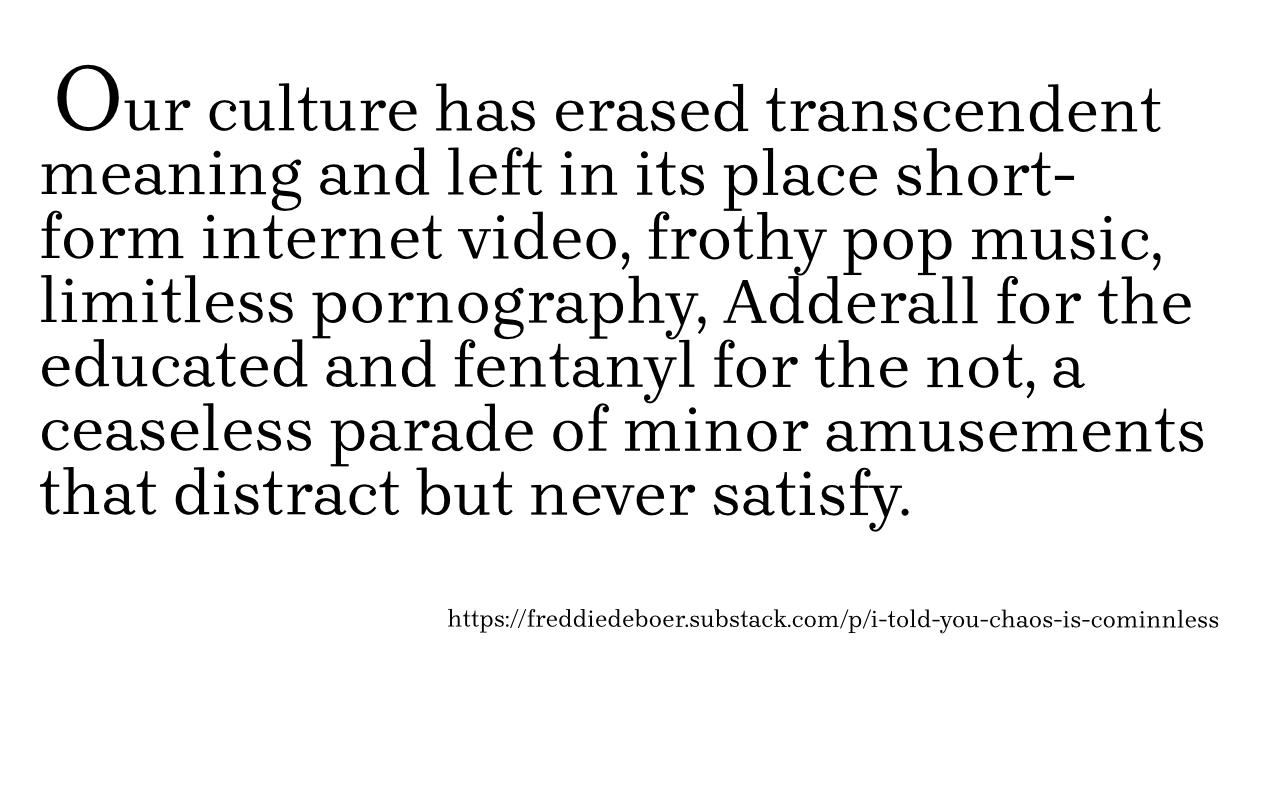2025
Forthcoming
Oct 12, 2025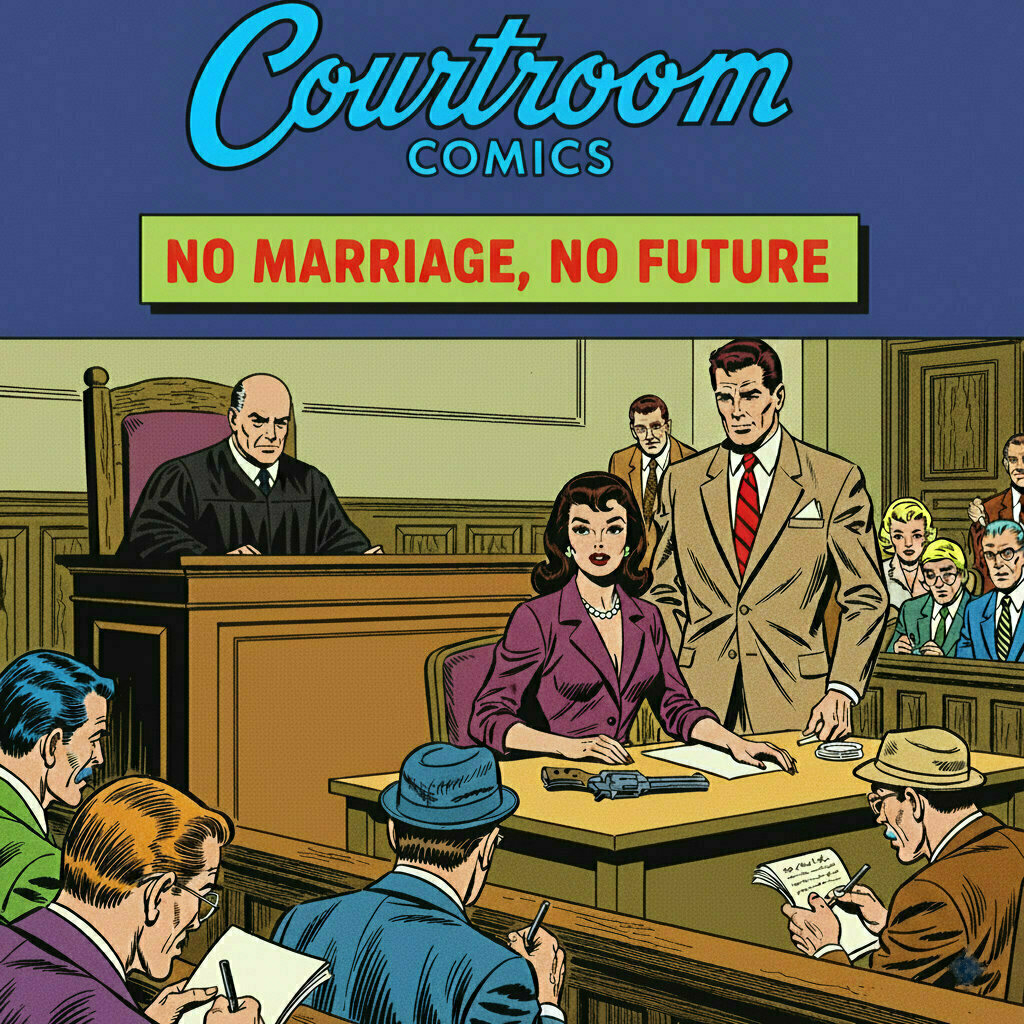
No Marriage, No Children, No Future

Save the Pilots, Save the Load, Save Yourself
Just posted: Girl, Taken. The true story of how ISIS killed Kayla.
The Hotel Arbez
Sep 30, 2025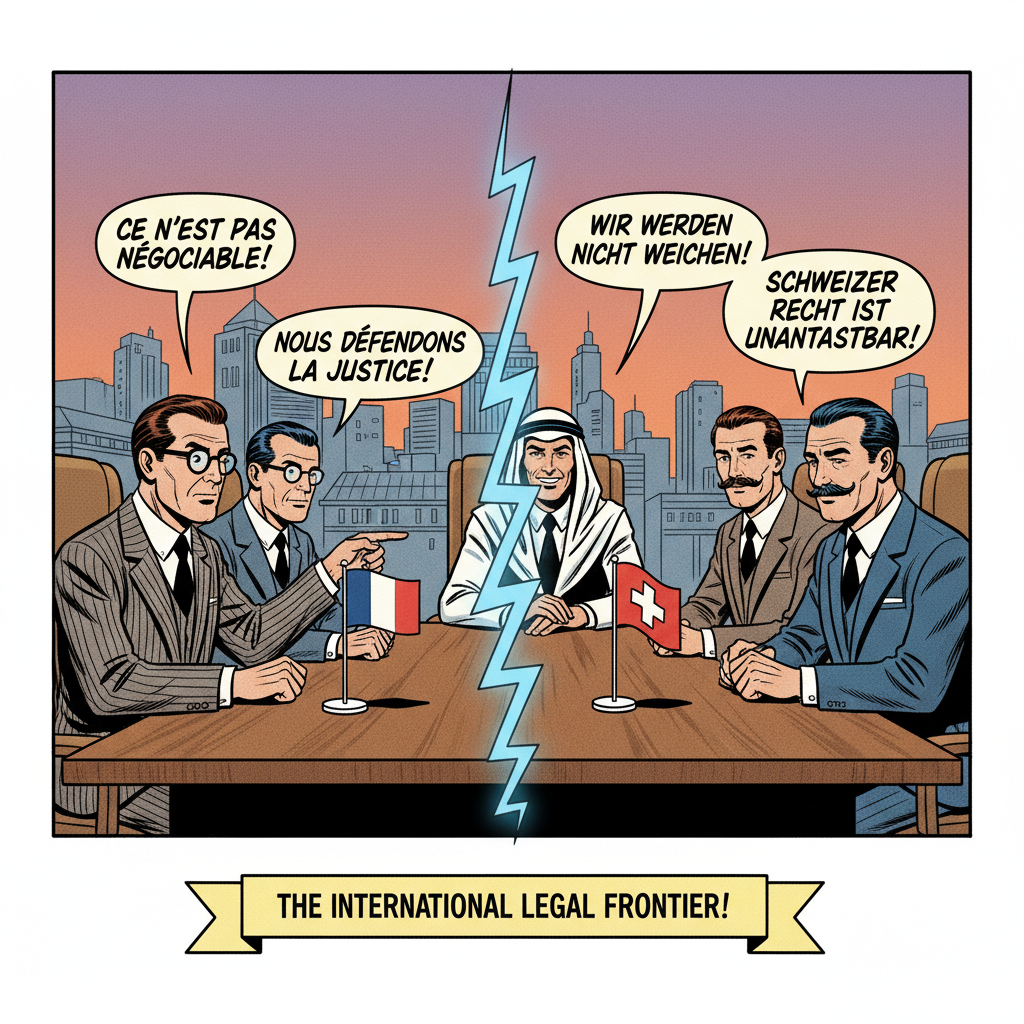
A planned meeting with a NSA general in Geneva; an intelligence network operating in Syria set up by a Saudi king; a meeting on 26 June 2023 with DoJ growing out of the 1MDB scandal; the aftermath of the Mariscal Sucre drilling project off the coast of Venezuela, a Russian hypersonic missile specialist seeking to defect; the location of kidnapped American journalist/spy/law student/ex-Marine Austin Tice; a CIA signer of the Hunter Biden laptop letter and meth smuggling routes out of Syria through Jordan and the UAE.
Oh, and North Korean nuclear scientists, a clueless British lawyer, a seized $250 million dollar award and hostages held by Iran. Jho Low, the Wolf of Wall Street and more.
If you want to read it, ask me for a copy.
New Identity Set Up
Sep 12, 2025In January 2024, my colleague crowbarred me into a conference call with Oliver Stanford, a potential client in New York who had been beaten up by a gang. The story, as relayed to me, was that Oliver was so traumatized by the incident that he wanted to leave the United States to live under a new identity.
I didn’t see this as a matter I could help with. Oliver was an attorney and if he needed a new name he could simply apply for one. Name changes are commonplace and surely an attorney would know this.
Oliver was afraid of gang reprisals. He didn’t feel safe and didn’t want even to identify the gang. Could be the Crips. The Bloods. Tren de Aragua. Even Da’esh. I didn’t want to participate in the call. He didn’t mention why the gang had attacked him.
Supposedly it had been a random attack. A random attack would not implicate the gang. Oliver’s attackers were not arrested. He did not know who they were. He was not asked to testify against them. There was no reason the gang would want to have anything to do with Oliver.
The 60-something Oliver claimed to be afraid for his life. There was no motive for the beating but he was sure the gang was “after him.” He wanted to move overseas with a new identity. He believed this was the only way he could be safe.
I told him that if he wanted to change his name, he could file for a name change by paying $500 or so, maybe less, to file a petition at the local county courthouse. Normally, only one hearing was required. There was no adverse party. I wondered why I should be telling this to an attorney.
The whole story seemed suspicious to me. Then Oliver asked where he should move. He only spoke English. So I said, Ireland, England, Australia, NZ. Canada. Maybe South Africa.
He didn’t think his assailants —he claimed to have been beaten up in Brooklyn–would leave him alone in these countries. Did I have an alternative? Medical care was yet another issue.
I recommended Malaysia. Former British colony, (mostly) English-speaking; good medical care that was delivered in English and practicing a mild flavor of Islam.
But Oliver wasn’t convinced.
Oliver also didn’t like the idea of a name change, even though I told him he could take a certified copy of the judgment to the Passport Office and they would give him a passport in the new name.
What he really wanted was a new identity. “Is that something you could arrange?” he asked. The fire alarm went off, clang clang clang. I felt like saying, “No, officer it is not.”
So that’s what this was all about. I wondered if he was a fugitive, running from the law. That would complicate the name change. More likely, he was an informant working on a Rule 35. Or a special agent, pretending to be a sixty-something New York attorney.
I told him he should get a legal name change and that would be sufficient. I further told him that I don’t run a private witness protection program. He quickly hung up.
I told my colleague–who was on the call—“you realize that call was recorded and he was trying to set us up?”
“Oh no,” my colleague said, “no way.”
“Way,” was my response. I never heard from Oliver again.
A Vietnamese-Speaking Lawyer
Sep 9, 2025Marguerite Duras published her autobiographical novel The Lover in 1984. Though she was already an accomplished novelist and filmmaker, it is that book in which she spoke of her childhood in Vietnam that made her a global figure. Having grown up in Vietnam, Duras spoke Vietnamese. She left Vietnam in 1932 and never returned.
In France she obtained a law degree. She was active in the Resistance during the German occupation.
Imagine Duras entering a Vietnamese restaurant in the 1970’s and surprising the staff with a native accent, the five tones of the South. Did her Vietnamese inform her writing? What was it like to give up her other language? Why did she kill that part of her?
A Failed Tonkin Incident
Sep 5, 2025The US hasn’t invaded Venezuela but crowed about destroying a fast boat that may or may not have been carrying drugs, that may or may not have been affiliated with Tren de Aragua and now we’ll never know.
We do know that there were eleven people on board. The federal courts teach us that “a prudent drug smuggler does not tolerate the presence of innocent bystanders.” Which means they were all in on it, but wait: you only need one or two to drive the boat, why carry an additional nine people and so greatly reduce your product-carrying capacity?
Ben Kramer, Don Aranow, Sal Magluta and Willie Falcon might have turned away from fast boats in the 1980’s and 1990’s if the US military was brought in for interdiction by cannon. Back then, the US took the Posse Comitatus Act seriously, but no longer. Trump has his own reading of the statute as he often does when he comes across language that wasn’t necessary for someone who grew up in the real estate business in New York. Judicial precedent means little.
Couldn’t we have convinced the eleven to defend themselves, maybe fire on a US ship? That would have given the US justification for war. The problem is that the ships were too far away. No one ever got close enough to see what flag the purported drug fast boat was flying. The protocol was to ask the country of registry if they objected to the US boarding the vessel. And guess what? Drugs are not always found.
I can’t think of a single case where the US simply rained hellfire on a ship in the open seas on the mere suspicion that trafficking was afoot. Next: we’ll shoot down airplanes.
We’ve done it before. The captain of the USS Vincennes authorized a missile strike against approaching fighter planes which turned out to be a civilian Iranian airliner.
The DEA has an air wing. Maybe fighter planes should be added to their arsenal.
Except…the destruction of the Venezuelan fast boat had nothing to do with the drug war. The drug war ended long ago.
Back to School: It’s Never Too Late to Chase Your Dreams
Sep 4, 2025The idea of full-time adult education caught my attention some time ago. Inexpensive student housing, world-class athletic facilities, no lines at Student Health, lectures on almost every conceivable subject and wine and cheese parties: what’s not to like?
I did my research and was drawn to the idea of becoming a non-degree seeking “returning scholar” for $70 per semester at Southern Illinois University based on my onetime connection to the State and an accent that marks me distintively as a native. Blending in was going to be difficult enough as is without making things worse by speaking with an accent that marked me as a foreigner, or worse, someone from out of state. Moreover, as I had no interest in a degree, no student loans needed to be subscribed to finance the back to school project.
When I was in high school, SIU was viewed as a “party” school, second only to that august institution, the University of Colorado at Boulder. The fact that degree-seeking students balance life and work and perhaps don’t take academic pursuits that seriously was a vote in the school’s favor.
Other seniors have closely watched the “back to school” movement if not copying the concept outright. A senior female golfer was attracted by the low greens fees at another back-to-school university. Her dream, before life intervened, was to play on her school’s NCAA golf team. At the age of 60, she tried out and made the golf team and realized her dreams.
John McAffee became a drug-fueled, red-noticed Interpol international terrorist after his sixtrieth birthday. He didn’t go back to school but maybe he should have.
It’s never too late to reach for your dreams.
Next: why “Smoking for Seniors” is trending. Get all the benefits of tobacco with none of the risks: you will lose weight and have more energy. You won’t live long enough to develop tobacco-related disease. You can hang out with the cool kids on smoke breaks while puffing away and trying to dissuade them from the habit.
Interesting Times
Sep 2, 2025
The UFO community is excited by reports of several anomalies attendant to what is probably an eccentric comet but which might be technological. The absence of iron in the chemical make up of its tail, its almost planned trajectory through our solar system and other un-comet-like behavior.
Trump hasn’t been seen for several days, helicopter Marine 1 flew from the White House to Walter Reed hospital, the National Guard is in the streets, vice-president JD. Vance is preparing to take office.
Despite promises, the Epstein files haven’t been released and the word is he documents are kept under lock and key to protect Trump, who may have had an unrelated stroke or cardiac event.
Th president of France, Emmanuel Macron, who married his grammar school teacher, has joined with her to sue an American reporter who claimed that Mrs. Macron was born a woman. The lawsuit to reclaim her honor ignores the example of Oscar Wilde, who proved that lawsuits to restore honor can backfire badly.And poor Oscar never had to deal with American-style legal “discovery,” a device designed to limit lawsuit excesses but which does anything but.
Israel will not desist from its war against Hamas and Russia will not desist from its war against Ukraine. George Harrison sang “the Ukraine girls really knock me out/they leave the west behind/Russian girls make me scream and shout/and Georgia is always on my mi-mi mind” bark when Russia an Ukraine formed part of the USSR. Could their war be fundamentally a civil war?
Lisa Cook Should Go to Jail
Aug 29, 2025James Brooks
James Brooks was a carnie, a worker at a traveling carnival that moved from one Southern State to another. Carnivals often winter in Florida, which was fine with Brooks, who was on the run from some unpleasantness in New Jersey.
Brooks had a fake driver’s license, a steady job and a part-time hustle for the Drug Enforcement Administration. He was far from a top producer for the DEA, but regularly reported to his DEA special agent handler who was able to turn Brooks’ leads into arrests.
Feeling almost like a respected member of his carnival community and given Florida’s lack of public transportation, Brooks decided to buy a car. Unfortunately, he did not have enough money to purchase the car of his dreams. A person with his background and position would be expected to steal a car, but Brooks did no such thing: instead, he applied for a bank loan at SunTrust Bank. SunTrust was heavily advertising their auto loans and one of their advertisement caught Brooks’ attention. He went to a branch, told the bank officer all about the dream car and how excited he was too purchase this automobile.
The bank officer told Brooks that the interest rates were higher for used cars, but this should present no problem. He handed Brooks a loan application which Brooks began to fill out. “You need a steady job,” the officer said.
Brooks hesitated. The carnival wouldn’t gear up for th4 season until April or so, there would be no paychecks until then. Brooks thought for a moment and decided to put his side hustle front and center. Under the section for “Employment,” Brooks wrote, “DEA.”
“What do you do for them?” The officer asked.
“I really don’t want to discuss it,” Brooks replied.
The loan was funded, the car was still available and Brooks purchased the car, a 1982 Ford Escort. He received a payment book from the dealer and each month ripped a page out of the payment book, went to the post office and bought a money order, and mailed his payment in.
There wasn’t a lot of DEA work and Brooks’ special agent handler told him that he would have to produce, otherwise, his informant’s gig would be at an end. To get information, Brooks would have to befriend those who used and sold drugs. In the carnival scene, this was primarily meth. Brooks did his best and from time to time informed on people in the scene he came across.
In April, Brooks left Florida in his Ford Escort and followed the carnival from state to state. A routine traffic stop—aren’t they all?—quickly morphed into something else when the record of his driver’s license couldn’t be found. Despite the warrant, New Jersey didn’t want to come for Brooks who happened to be with the carnival in Ft. Lauderdale when the traffic stop was made.
The arresting officer was with Oakland Park police and was cross-designated with the DEA. The DEA didn’t require its agents to have a college degree and used local police departments as their minor leagues, a a recruitment pool of young officers who might be tempted to leave their local departments for better federal pay and benefits. The Oakland Park police officer had this in mind and referred the matter to the US Attorney.
A grand jury then indicted Brooks for bank fraud. Never mind that he had faithfully and regularly paid the loan. Never mind hat the loan was current. He had told two lies. Brooks lied about his name. This was understandable, given the warrant from New Jersey. The false name had no credit score and the bank had not relied on someone else’s credit when deciding to fund Brooks’ used car purchase. The second lie was that Brooks was employed by the DEA. Brooks regularly received money from the DEA, but in the days before the rise of the gig economy, you were either employed or you were not. A side hustle, no matter how regular, did not qualify as employment.
Brooks went to trial, confident in his belief that a jury of his peers would acquit him. After all, he was practically law enforcement and had helped put drug dealers in jail. The jury indictment was a cruel joke. Brooks tried to find his special agent DEA handler to ask for assistance, but the DEA rebuffed all his efforts.
Federal trials almost always result in convictions. The percentage of convictions is in the high 90th percentile. An acquittal is an aberration that almost never happens. The Palm Beach county federal jury did not take pity on Brooks because when the judge charged them with the law, they were to consider one and only one question: did Brooks lie to the bank? If the answer to that question was “yes,” they had to convict.
They were to ignore the fact that he was current on the loan. The jury was to consider a letter from the DEA, put into evidence by the prosecution, that stated a research of DEA records was conducted and “no evidence of an employee by the name of James Brooks could be found.” The jury followed the judge’s instructions.
When it came time for sentencing, the learned federal judge took into consideration all the factors he had told the jury to ignore. Brooks had paid the loan. He was arguably an adjunct law enforcement officer in that turkey drug world. The bank could not be said to have been defrauded except in some technical sense. The DEA had probably gotten into some kind of argument with Brooks and that is what had led to the indictment.
The judge sentenced Brooks to a little more than a year in jail. By doing so, he insured that Brooks would get the full 55 days of good time off his sentence. Brooks would be eligible for halfway house and work release after just four months, a just result.
Lisa Cook
Lisa Cook is one of the governors of the Federal Reserve. When she applied for a bank loan, she claimed that the money would be used to purchase an owner-occupied single family home, the safest kind of mortgage for the simple reason that everyone needs to sleep.
Cook lied to the bank. She already had an owner-occupied primary residence. This new property was an investment, a second home. But not the first.
Cook lied to the bank. Like it or not, this is a federal crime. It doesn’t matter if she is current on her loan. It doesn’t matter if she never intended to defraud the bank. All that matters is that she lied to the bank.
This is not a Donald Trump issue. It is not about Trump’s war on the bureaucracy. It is about one simple question:
Why should Brooks go to jail but Cook be given a pass?
The Missing Piece
Aug 26, 2025I have been thinking a lot about “what if”’ scenarios. I also have been thinking about how precarious things are at the moment. The last time I felt this way was August, 2001. I had just started a new job in Riyadh. All my financial problems were over. I knew something was going to happen. I didn’t know what. I thought that maybe Saudi Arabia might reset or even break off diplomatic relations. Something was in the air, but no one expected 9/11.
There will be no peace in Gaza. Netanyahu is not a peacemaker. His father was a historian who hadn’t gotten over the treatment of Sephardis in Spain in 1492. Netanyahu lost a brother to the PLO in Uganda. October 7, comparatively was yesterday. There will be peace only after an unconditional surrender and he does not understand why the global community pressures him but doesn’t pressure Putin, who started a war.
There will be no peace in Ukraine, either. Zelensky sees the support of Europe and believes there is no reason to give in. Putin will wait. There will be minor shifts on the battlefield, but he gains nothing by making peace. He has already recognized that his initial objectives were not made. Territorial concessions were only half of what the war was about. If Trump pressures Ukraine, so much the better. Putin is in no rush.
There has been a lot talk about America’s vigorous president, who has his 80th birthday this year. Biology cannot be ignored. Trump has never had a healthy diet. Assuming he has the best physicians American has to offer, there is a long history of good doctors being afraid to treat their leader patients.
His doctors will be overly cautious, afraid that aggressive treatments will fail leaving the patient in a worse state than before. If Trump’s physical condition is as bad as some suspect, the country my find itself with a caretaker president.
Trump is incapacitated and Vance takes over. Or Vance hangs back because Trump’s inner circle keep him at arm’s length. It happened with Biden. China and Russia will feel out the new leader. Israel will hit Gaza harder than ever before.
Vance then serves out the rest of Trump’s term and wins a new term easily. But there’s a missing piece. I don’t know exactly what it is or what it will mean. All I know is that there is a missing piece.
The Missing Piece
Aug 26, 2025I have been thinking a lot about “what if”’ scenarios. I also have been thinking about how precarious things are at the moment. The last time I felt this way was August, 2001. I had just started a new job in Riyadh. All my financial problems were over. I knew something was going to happen. I didn’t know what. I thought that maybe Saudi Arabia might reset or even break off diplomatic relations. Something was in the air, but no one expected 9/11.
There will be no peace in Gaza. Netanyahu is not a peacemaker. His father was a historian who hadn’t gotten over the treatment of Sephardis in Spain in 1492. Netanyahu lost a brother to the PLO in Uganda. October 7, comparatively was yesterday. There will be peace only after an unconditional surrender and he does not understand why the global community pressures him but doesn’t pressure Putin, who started a war.
There will be no peace in Ukraine, either. Zelensky sees the support of Europe and believes there is no reason to give in. Putin will wait. There will be minor shifts on the battlefield, but he gains nothing by making peace. He has already recognized that his initial objectives were not made. Territorial concessions were only half of what the war was about. If Trump pressures Ukraine, so much the better. Putin is in no rush.
There has been a lot talk about America’s vigorous president, who has his 80th birthday this year. Biology cannot be ignored. Trump has never had a healthy diet. Assuming he has the best physicians American has to offer, there is a long history of good doctors being afraid to treat their leader patients.
His doctors will be overly cautious, afraid that aggressive treatments will fail leaving the patient in a worse state than before. If Trump’s physical condition is as bad as some suspect, the country my find itself with a caretaker president.
Trump is incapacitated and Vance takes over. Or Vance hangs back because Trump’s inner circle keep him at arm’s length. It happened with Biden. China and Russia will feel out the new leader. Israel will hit Gaza harder than ever before.
Vance then serves out the rest of Trump’s term and wins a new term easily. But there’s a missing piece. I don’t know exactly what it is or what it will mean. All I know is that there is a missing piece.
Law School and Assassination
Aug 25, 2025
Law school will not teach you how to survive an assassination attempt. That is a skill you will have to learn on your own.
Abrego Garcia and Anna Delvey
Aug 24, 2025
In travel news, Trump wants to send Abrego Garcia to Uganda and federal troops to Chicago. Anna Delvey (Inventing Anna) remains in the US because the Nine Sages of the Supreme Court haven’t dealt with the appeal of her criminal case. With so much Trump-related litigation taking up the court’s attention on both its regular and “shadow” dockets, perhaps there is little time to devote to Anna’s case. It shouldn’t take long for the Nine Sages to issue their “cert.denied” order, but the rules for celebrity justice are different. Like it or not, Delvey is a celebrity, appearing in the pages of Vogue, Page Six and wherever else celebrities hang out these days.
Though not a matter (yet) for the Nine Sages, Delvey may be a candidate for African deportation. Delvey came to the US from Germany, where she was not a citizen, but a resident. Germany is unlikely to accept for residency an individual who has committed felonies in the United States. This leaves the Russian Federation, where Delvey was born and may be able to get a Russian passport. Whether Russia takes her back depends on whether the US is holding anyone Russia wants. Or whether Russia is holding anyone we want. Involving Russia in a prisoner swap is like three-dimensional chess: Russia will insist that an individual in another country be part of the exchange, while the US gripes that any exchange should only be a bilateral arrangement. While all this squabbling goes on, Delvey gets to stay in New York. I wonder if she even still speaks Russian–she left at a young age and grew up in Germany.
If the US deports Abrego Garcia to Uganda or its other favorite, South Sudan, it will only be a question of time before he shows up at the Southern border in search of a coyote to take him across. Don’t expect him to avoid legal entanglements by moving his family back to El Salvador. Abrego Garcia wrongly believes, as do all upon whom the attention spotlight falls, that the reason a US senator traveled to El Salvador was due to a genuine interest in Abego Garcia’s case and well-being. Nothing could be further from the truth. Interest in his case exists only because it’s an effective way to criticize Donald Trump. Once Trump is taken out of the equation, no one will care.
If Abrego Garcia can get to Dubai or Istanbul, he can get a flight to South America. Once in Colombia, he can join others crossing the Darien on foot and then it’s an arduous–arduous but doable–bus ride north to and through Mexico. Financial help will arrive from “supporters” who would love to see this Salvadoran thorn prick Trump’s side again. Stories of the trip through the jungle, being threatened by smugglers with a cameo by the colorful Kuna Indian tribe of Panama–for whom the names “Wilson” and “Woodrow” are commonplace–will enrage those who blame all these hardships on his nemesis, Donald Trump.
In the old days–that is before the FBI put a stop to senators selling immigration relief through expensive private bills, special legislation would go through Congress regularizing Abrego Garcia’s immigration situation. I wonder why so little is said about his American-citizen wife. It is understandable why she may not be keen on moving to Uganda and the idea of a Darien jungle trek doesn’t really sound like a fun vacation.

Meanwhile, Anna Delvey appears in a multi-page Vogue spread and you can almost ignore the black “electronic monitoring device” affixed to her ankle. It is just a question of time before these become a “must have” fashion item and the market is flooded with cheap–albeit, tariff-paid, non-functioning copies to complete the look.
Soon, everyone will have one.
How to Recover Your Windows Password
Aug 21, 2025
I spent the better part of the day trying to get access to a Windows 11 laptop. I hadn’t used the laptop for two months. There is a Windows setting that forces you to change your password periodically. I don’t know where this setting is found. I don’t even want a password; it’s an unnecessary inconvenience. If Iranian Intelligence steals the laptop, I have no doubt they will know how to get in, password or not.
I assume that because I hadn’t changed the password—the laptop was sitting in a drawer for two months—is the reason Windows decided to lock me out of my account. I spent a few hours with ChatGPT trying to unlock this puzzle box, but no joy. So I decided to bite the bullet and buy PCUnlocker. I created a boot disk on a USB, plugged it in and found that you needed a UEFI boot disk.
Fine. So I created that. Still no BIOS boot menu. Why? Because my PCUnlocker boot disk wasn’t signed, so no luck. Maybe some day I’ll be able to use PCUnlocker. But not today.
So I downloaded a 5 gb Windows iso file. This was a mistake. Then I downloaded the Windows installation media creator and ran it. The Windows media installation media creator assumes that you haven’t already downloaded the necessary iso file and there is no way to tell it that you already have downloaded a perfectly usable iso file. So the media creator…downloads another 5 gb.
This time, the finicky BIOS recognized the USB drive and let me boot from it. I needed a command prompt. That’s ctrl-F10 but good luck finding it in the documentation. Where “the” documentation resides, I have no idea. Now with the command prompt, I substituted cmd.exe for utilman.exe in \Windows\System32 Exit out of that and reboot. Now when your name appears on the login screen, a command prompt will also appear (if it doesn’t, it’s in the Accessibility options). You’ll get
X:\Windows\System32 Type in C: and now you’re at the C: prompt. This assumes your Windows installation is at C: and not some other bizarre location.
Now, all you do is type net user USERNAME NEWPASSWORD
I recommend a password you will not forget, or if you do, you might stumble upon, like 1234 or password.
Hit <Enter>
Your PC will return a message along the Ines of, command completed successfully.
Type exit or reboot or turn off the power. Remove the installation media. When you reboot, enter the new password. Abracadabra, the gates to paradise will open with all your files, all your settings.
Now, back-up that installation. Por favor.
I’m leaving cmd.exe where it is. This could happen again.
My Gerry Spence Story
Aug 21, 2025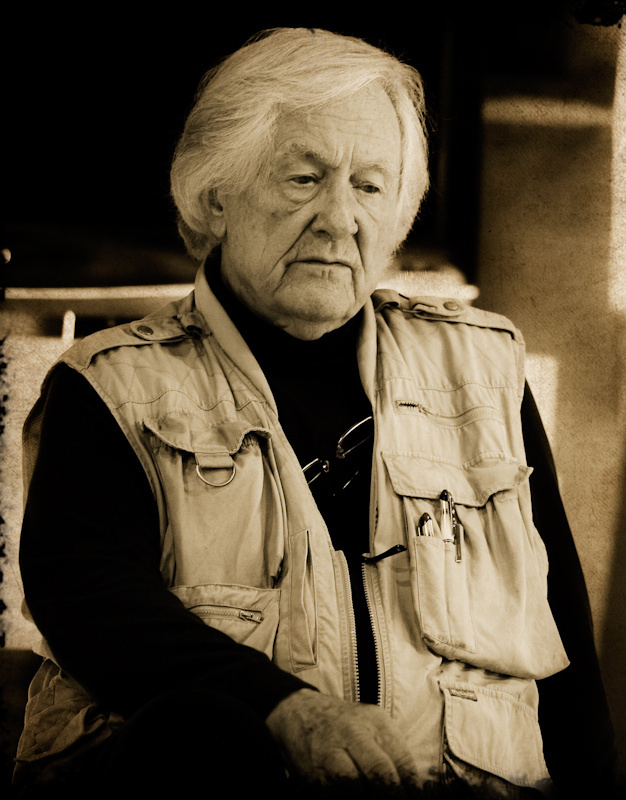
Gerry Spence, the famous trial lawyer, died yesterday. Here’s my Gerry Spence story.In 1990, I wanted to be among the top ten criminal defense lawyers in Miami. That was my goal. Not the best–there were already some very good lawyers practicing. But reaching the top ten was possible.
This meant looking at trials not as a mere rote procedure described in Thomas Wolfe’s The Right Stuff–first I do this, then I do that. First I wait my turn at the podium and then I stay behind the podium to ask a question. Then I ask to approach. Then I stand up to speak. Then I sit down. Etc., etc., etc.
Bo Hitchcock–they made a movie about him when he eschewed conventional treatment for his throat cancer and sought a cure in Leticia, where Colombia, Peru and Brazil meet. His chosen cure was ayahuasca. They made a movie about his quest. The cure was ineffective. But before all that, Bo was one of the few who viewed trial as craft. He wanted to be better too.
Bo and I had an idea. We would travel to Wyoming, sit at the feet of the master and learn from him. Bo made the call, telling Spence that we knew that he was the best and could we learn from him for a week or two?
Spence was a humble man. He thanked Bo and said that he was not the best. If we wanted to learn from the best, we should contact James Shellow in Milwaukee. Shellow was willing to let us learn and invited us to Wisconsin. He also refused to accept the compliment. The best, Shellow said, is a lawyer named Frank Oliver. He’s retired and lives in South Florida.
The journey that started in Miami, reached to Wyoming and then Wisconsin had doubled back to a place called Kendall, part of the urban sprawl that is Miami, maybe a fifteen minute drive from my house, traffic and the Florida Highway Patrol permitting. We told Oliver what Shellow had told us, that he was the best criminal defense lawyer in the country.
“Well, I am” Frank said.
There’s much more to be said about Frank, but that’s my one interaction with Gerry Spence.
The Grift
Aug 12, 2025What is more American than the grift?
George Santos “embellished” his resumé, not worrying about the fact that identity politics trumps even outright lies. Santos claimed to be Jewish, biracial, and finding one box unchecked, gay. He is Latino enough and there are Holocaust survivors, albeit imaginary ones, in his family tree. A claimed 9/11 death in the family makes up for a lack of military service, and when the New York Times finally looked into his background and uncovered his failure to graduate from college only means the fact that he is a high-school dropout was lost in the noise. Shilling for sympathy, Santos had his mother die twice. He started a charity for animals and pocketed the cash, knowing that dogs and cats can’t file fraud complaints. He is an accomplished shameless liar, as any good grifter must be.
None of this prevented his election to the 117th Congress.
If anything, he is the perfect candidate.
The Hotel Arbez
Aug 6, 2025
The Hotel Arbez was selected as a debriefing site. The border between France and Switzerland cuts through the dining room and a staircase. During WWII the Germans respected Swiss neutrality and respected the border. It is said that even the SS did not go up the Hotel’s stairs in search of enemies of the regime.
Tarek wasn’t supposed to leave Switzerland; USDoJ attorneys had no authority to operate in France. So he was going to sit on the Swiss side of the table while USDoJ sat on the other side. What is called “Queen for a Day” immunity would be granted; that is, use immunity for anything discussed at the table.
The debriefing never happened. Goaded by British lawyers who were unfamiliar with American plea bargaining, Tarek asked for assurances, assurances that could not be given without knowing what he had to trade. And that could only be gleaned during a debriefing. I sent him an email a week ago commenting on the Ghislaine Maxwell meeting with the DoJ. The immunity grant given to her was exactly what they had offered Tarek, who changed lawyers, gave up on a deal with DoJ, went to trial in Switzerland and got eight years.
Shadow Puppets
Aug 6, 2025
My first exposure to the shadow puppets was their display in the film The Year of Living Dangerously, starring transgender Linda Hunt, except that she wasn’t transgender, the term was not in use then, she merely played a man, a photographer. A pre-antisemitic Mel Gibson also starred. Based on a novel by C.J. Koch. Journos in Jakarta, all of them hearing the siren call of Vietnam. We forget that Indonesia was the Dutch East Indies, that Bali was the only Hindu territory outside of the subcontinent and that once women there normally went bare-breasted. Suharto replaced Sukarno and their names were similar enough that no one paid attention. I thought the word for those “puppets” was wayang (as in wayang on the left) but I could be wrong. Of bhasa Indonesia I know nothing.
Pablo Neruda’s first wife was from the Dutch East Indies (not the girl of Veinte poemas), she returned to the Netherlands just in time to see the country overrun by Panzer Divisions. Now Indonesia is the world’s largest–by population–Muslim country, but theirs is a tolerant Islam, alcohol is permitted and restrictions imposed by the Prophet (pbuh) are interpreted in a generous fashion.
Gil Williams, who wrote Man on a String (as Michael Wolfe) loved Vietnam, not so much the American War, but the combination of French and Chinese food that gave rise to Vietnamese cuisine. On Panama Canal transits he sought out ships that offered French Basque cuisine which he judged superior to almost all others. He would be happy to learn that Vietnam today follows not the Khmer Rouge but Deng Xiao Ping.
When I was in Phnom Penh I saw the ads for buses to Vietnam, Sài gòn only four hours away, Miami to Tampa, I had to go. Crossing the border it suddenly became possible to read the signs, though I didn’t know what they meant. English widely spoken, French not so much. But Orangina avec sandwich jambon beurre, bread like France. Even a French bookstore! Rhodia legal pads!
I was never arrested by Colombia’s DAS, merely detained briefly once for bad language. I got the equivalent of a “time out” at the airport. They decided that my Spanish wasn’t good enough to sustain an accusation of improper use of the language. Lesson learned. I used to have a cédula de extranjería. I don’t have that brown booklet anymore and I assume that the records were lost when M-19 stormed the Supreme Court in Bogotá and burned the files. It would be nice to get it back.
Puppet Show
Aug 4, 2025On the day I was stopped by police for possible involvement in an attempt to assassinate Jacques Chirac, I went to a saloon in Paris and brought a puppet I had purchased as a gift for my son. At first the puppet stayed in its backpack, but then he insisted on being brought out.
How was I to know that he had a foul mouth? A French-speaking English woman drinking with a group from work popped in to translate now and then because the puppet had little fluency in French. This did not stop him from buying rounds and of course, I had to apologize to everyone for the puppet’s generally rude behavior. On my left (puppet’s right) were two French guys, intrigued, commenting from time to time on the puppet’s behavior and largesse. They say, “you know how Americans are” but I tell you, puppets are worse. They really are.
An Act of Charity
Aug 2, 2025A young mother with her malnourished two year old son has staked out a begging post at the entrance to the BTS Metro station at Ekkamai. She is unwashed, unshod; she looks about fourteen and her son, similarly covered with the dirt from the busy street, is always either sleeping in her arms or playing in a discarded styrofoam box. She holds up a dirty plastic cup recovered from the trash for her begging; a few, but only a few stop to drop a few coins into her cup.
I give her 20 baht whenever I pass. She sees me coming and smiles, knowing that I will stop as I approach, that I will turn away from the pedestrian traffic and reach into my pocket for a small banknote for her struggling family. The little boy never smiles.
Last night she was still at the station when I returned from dinner around 10 pm. There were few out at that hour; her takings at that time would be limited. I slowed my pace and waved. She smiled.
Her son looked at me and gave me the finger.
Relativity and AI
Jul 10, 2025Will AI Eat Relativity?

Relativity relies on the availability of poorly-paid new law graduates to analyze documents provided in discovery in civil cases. What will be the effect of AI on Relativity and the document review industry?
With respect to health care, Bill Gates claims that AI will decimate the medical sector. Decimate is only 1 in 10; he’s talking about 8 in 10 losing their jobs. He also points out that the shift caused by AI is already happening.
Gates identifies three areas that will be exempt from AI. First he exempts his own profession, which is a blind spot most suffer from (it’s always, “it will affect someone else”). The second is the energy sector “because it’s too big.” Nonsense. This is just a matter of scale.
The final exempt field, according to Gates, is pure science, basic research. Studies that led to transparent wood, for example, will be safe from AI because AI lacks the creativity to imagine transparent lumber. AI would probably do well with, “is there any way to make wood transparent?” But coming up with the question in the first place is outside AI’s capabilities.
That brings us to Law. How will AI affect the practice of Law? We must start with Cicero, who taught us what lawyers do:
“Respondere is the issuing–usually in oral form–of an opinion on a particular case at the request of a layman, magistrate, judge or other iuriconsultus. free of charge, Cavere is the drafting (and advising on drafting) of wills, forms of contract and other transactions; Agere denotes a person acting in a trial or the advice given on his behalf by a jurist.”
Of these, only Agere will survive the AI tsunami. Remote trials will lead to holographic trials, but don’t be fooled–it will be while yet before robots defend clients in criminal trials. However, we may see automation of certain court proceedings.
Legal work not involving hearings will be eliminated by AI. That includes most of what lawyers do outside of court—including the review of discovery.
AI will eat Relativity. Relativity’s defense will be to incorporate AI in its program. Once that is accomplished, they won’t need document reviewers. All they will need is an appropriate large language model.
Handicapping the Conclave
Apr 30, 2025(Guest post by Dr. D. Ball)
There is an old saying: He who enters the conclave “papabile” comes out “cardinale.”
Predictions mean almost nothing. When Ratzinger was elected, it is rumored that the one he almost lost to was Bergoglio, but there is really no proof as the ballots are burned after each ballot. In any event, Bergoglio’s name was never mentioned as being a serious candidate.
When Bergoglio assumed the throne, he announced that his would be a short pontificate. This is what the College of Cardinals (“CC”) wanted: Ratzinger was more or less a continuation of JP2, and together, their reign went extended from 1978 to 2013. Ratzinger had rewritten the Catechism at JP2’s order, seen the end of the Cold War and basically put what they thought were the final touches on Vatican 2. The CC did not want to risk repeating such a long traditional-ish pontificate, so out comes the shy, outlying 76 year old candidate with half a lung missing .
But, alas, the Holy Spirit has other plans, or as the Yiddish saying goes, man dacht und Gott lacht.
Like Catholics everywhere, I mourn Francis’ final illness, immense discomfort and passing, although the blessing of dying during the octave of Easter is indeed a blessing. However, the past 12 years have witnessed an erosion of the foundations of the Catholic Church which you have often heard me call a transformation into just another Protestant social action committee. The Church in which you first served as an altar boy no longer exists…by Papal fiat!
As an honorary Argentinian, and as someone who knows people who knows people, I am privy to certain knowledge that might be considered privileged. Francis was almost certainly a Mason. So is Tagle. This has been rumored for years. Tagle also was involved in some sort of financial mismanagement as the head of Caritas. Though the Filipinos are indeed very devout Catholics as a rule, many have also fallen prey to the clutches of Freemasonry, and yet other, many others, have been baptized by priests who were married or in adulterous relationships and who acted in every way in rural areas of the Philippines like proper diocesan priests…except they were actually ordained by Aglipayan bishops.
Tagle, if elected, would be a continuation, perhaps even a more liberal one, than Francis, if that can be imagined, and the globalist agenda will overtake the theological one.
The CC I think will want to try to find a middle ground: someone who is not a theological dinosaur, not on the edge of death, progressive and open as far as social issues and gay inclusion are concerned, and willing to use his considerable moral power to take a stance against the spread of right-wing dictatorships or tyrannies across the formerly immune West.
The ideal candidate will be one who will be diplomatically astute, somewhat intellectual, who is willing to abrogate Francis’ antagonism towards the Tridentine Mass, bring back some of the old traditional pageantry of the Church, strengthen catechesis of young Catholics (which, I can tell you, is in a pathetic state), and be multilingual.
He must be able to speak, read and write Italian because that is the administrative language of the Church, and that immediately excludes charismatic, media-friendly American candidates like Cardinal Dolan of NY. Cardinal Burke would qualify, as he is fluent in Italian and Latin, but he wants to undo Vatican 2, bring back the Tridentine Mass, turn the priest back around, and revolutionize by turning the clock back, which will not happen. I do not believe the CC will elect a reactionary like Cardinal Sarah (he’s 79 anyway) or one of the homophobic Africans … the CC won’t retreat on that issue.
Most religions have come to realize that the gay community is a good ally to have. They know that if the gays are once again excluded, the Church will begin to disintegrate or even go into schism.
I’ll venture a few educated guesses:
1) It’s time for an Italian again. How long has it been? 47 years since we had a real Italian? Zuppi of Bologna would be my first choice over the one that everyone is speaking about, Secretary of State Pietro Parolin, who is from the Veneto region. Either one would be good, and they are the right age. Grech, from Malta, was very close to the last two popes and is an old insider, and who is more Catholic than a Maltese? He would be fine too. Erdo of Hungary is a bit too stalwart, like Orban. Schönborn of Vienna is 80, but an intellectual; however, his downfall is that he is from a true noble family. No go. The camerlengo Kevin Farrell, formerly Archbishop of Dallas , born in Dublin and naturalized American, would be fine, but generally the camerlengo is never elected, and his spoken Italian is quite “American freshman doing the Eurail tour.” Scola of Milan (83) and Bagnasco of Genoa (82) are both too old. Their time has passed.
2) Pizzaballa, the Latin Patriarch of Jerusalem, is a distinct possibility. He is savvy, progressive, speaks Hebrew and Arabic, but at 60, we are looking at a long pontificate. He was quite close to Francis, which may be a positive for some, but not for all. Despite all the tears and the fact that 108 of the 135 electors were given the red birretta by Francis, a lot of powerful people did not like what happened to the Church under his watch.
3) Turkson from Ghana was spoken about in the last two conclaves. Accessible, smart, politically gifted…but let’s be honest: Is the CC really ready to put a black man on the throne of St. Peter? He’s 76 so he might be a compromise candidate if the conclave lasts beyond 5 ballots.
4) Aveline from France is too liberal, just another Francis.
Now for pontifical names. I pray the tradition of taking the last pope’s name as a tribute is going to end. While making a wishlist, I also hope they return to the rule of waiting 50 years before beginning the process of canonizing someone, and that having been a Pope does not automatically grant one an inside track towards sainthood.
Trust me – for all the good moments, Bergoglio was no saint. He did many things in his life which I am sure he has come to regret – as we all have – but in his case, some of his actions resulted in fatal consequences. What he did to my former correspondent the Cardinal Archbishop of Wroclaw was a travesty and a case of the pot calling the kettle black (I can go into further depth at another time).
I am hoping for a bit more expansive thinking: Pope Paschal III (denoting the Pope’s role as alter ego for Jesus’ sacrifice) would put to rest the controversy of Paschal the antipope of the Middle Ages, but nobody will go for that.
My reasonable choices, in order of preference, would be Clement XV (“forgiving” is a wonderful connotation, as well as the name being a backhanded slap at the Jesuits because Clement XIV was the Pope who suppressed the Order), Gregory XVII (“shepherd” is a good image for a Pope), or Pius XIII (the only problem being the number).
Leo XIV would be fine because after all Jesus, descendant of King David, is the conquering lion of the tribe of Judah, but Leo XIII is not very well regarded by current thinkers so that name will probably fall by the wayside. BTW, just a parenthetical: Pope Leo XIII was elected at age 68 and in extremely frail health after the amazingly long pontificate of Pius IX, the thought being that the CC needed more time to think of who to put on the throne of St. Peter. Well, Leo wound up lasting 25 years. Nobody will take the name Peter, despite what some media and prognosticators have claimed.
Copy Machines
Apr 21, 2025Copy machines were always busy at the law office. Whatever you wrote, you needed one copy for opposing counsel, one copy for chambers, and one—if you were feeling reckless—or two for your own files. If you ran out of plastic toner, you were lost. Without copies to take to the Clerk’s office for filing, it was as if your work had not been done. Nowadays, the copiers are mostly silent. Filing at the clerk’s office is electronic only.
Paper has its own demands. You have to do something with a pile of documents. An email can easily be ignored; an email may be dumped into a spam folder only to expire after a month without anyone ever knowing that it was there.
How to Start and Build a Law Practice by Jay Foonberg
Feb 22, 2025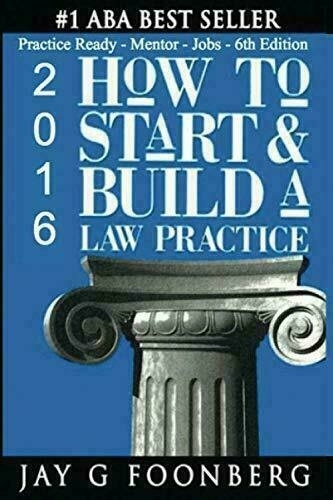
You can’t just start representing clients that fall into your lap without reading Jay Foonberg’s How to Start and Build a Law Practice. You really need to buy a copy. Do so ASAP. If you can’t afford to buy the book, read it at the library. It will probably be checked out, so expect a long waiting list. Don’t bother trying to find the book in a law library. Their copy was stolen and they’ve had to order another.
I’m not going to scold you but I’m going to scold you:
- You don’t meet clients at your home. Ever.
- You don’t have animals running around when you meet with clients.
- Don’t expect clients to pay for a consultation. You’re not at that stage yet.
Whether you get to that stage depends on how closely you take Foonberg’s advice.
It’s very easy for me to light up a cigarette while complaining that there’s “No Smoking” in the room. Full disclosure: when I moved my office from Ft. Lauderdale to Miami, I had an office in my home. Worse, I met with clients there. Even worse still, I met with criminal clients there. But I’m not being a hypocrite, I learned from the experience.
“I don’t have the cash for an office,” I hear you weep. I understand. Cash is always a problem.
One of the reasons I moved was to cut down on expenses. Immediately I could stop paying my landlord; the money went into my pocket. When I realized I couldn’t meet clients at my home—and my house had an extension that was set up with its own entrance, but still—it was somebody’s home, it was a residential neighborhood, etc.—I would meet clients at a coffee shop, or at their apartment, wherever.
After I no longer had an office, I once went to a client’s home to collect a fee. When I walked into his place there was an open attache case with a half-opened kilo of cocaine and a pistol on the kitchen table—but did that dissuade me? Of course not.
If you’re going to eke out a practice as a sole practitioner you have to pretend. Fake it until you make it. You need to screen your calls. That was a problem I never solved. An answering service is a step in the right direction. But not a perfect one.
You have to get a lawyer to let you use his conference room from time to time. Preferably, one that you are doing work for, like writing briefs. OK, maybe such a lawyer in New York will have his hand out. Until you’re at the point where you can afford some kind of arrangement, meet in coffee shops, in diners.
The Three Star diner in Brooklyn wouldn’t be bad, especially if they make a big fuss around you. Law libraries have conference rooms; that might be an option. Stack half-open law books on the table; let the potential client see how hard you’re working. You can’t meet in your office because you’re doing legal research but you’ll squeeze him in. While you’re at the library take some time to read the advance sheets; these days a subscription is a $30k downstroke and they say the publishing business is in trouble.
Sam Walton ran his business from a diner; so did Arnold Rothstein, the gambler who fixed the 1919 World Series. These were eccentric characters. Marketing your own eccentricity may not be a bad hook. Don’t tell me you’re not eccentric either—you earned that moniker when you warned your client that there might be cats running around during your initial conference.
I have always envied physicians who are able to squeeze money out of a patient for an initial consultation. That opaque glass window protects the Holy of Holies until it slides open to receive a check or credit card which you better have ready otherwise you won’t be seeing the doctor today. Do you think your physician client meets with patients in his home? Of course not.
Miami’s Ira Kurzban is one of the most celebrated immigration lawyers in the country. You want to see Ira? No problem, make an appointment. You want an appointment? $500. You want to pay the day of your appointment? Guess again. If your funds don’t clear, your appointment is canceled. His kind of practice is anything but normal.
Lawyer’s at Ira’s stage of practice can get away with this, but most can not. Too many lawyers advertise “free consultation” so you are expected to give your time away too. The one exception is divorce practice, where people learned after a Sopranos episode that it costs just to meet with a divorce lawyer after Tony Soprano showed them the way.
For a lawyer, it is extraordinarily difficult to get paid for an initial conversation. A prospective client will squirm like a raver on E before turning over a dime to a lawyer for a consultation. They’ve seen billboards offering free legal services. Why don’t you offer free legal services too? Free consultation, free legal services, isn’t it all free?
My point is, a guy who has to warn a landlord about undisciplined cats roaming around isn’t going to get clients to show up at his home, never mind fork over an initial consultation fee.
Yeah, yeah, “physician heal thyself” and all, but as I puff on my cigarette and demand that you put out yours, consider my advice.
Read Foonberg.
ChatGPT and Lawyers
Feb 22, 2025Let’s say that ChatGPT isn’t very good when it comes to the law. Hallucinations are an expected hazard of its use. The lawyer knows the law, but that’s not enough. A lawyer has to know how to close a real estate transaction, zoning, emergency room medicine, mechanical engineering, fire prevention, supply chain, distribution rules for the promotion of medical devices, IVF, electrical construction load best practices, what a lineman calls a “pot,” CRISPR, decennial liability and how to read a financial statement. And over the course of a career, maybe a hundred other things. Like, that you can break a car window with a spark plug. That a 9mm shell won’t fit in a .380. That 12 points of fingerprint comparison are no longer needed–eight is enough. What a triple-neck round bottom flask is used for. Whether precursors can be used to make levo- or dextro- versions of a molecule. All the substances that share the molecular weight of C17H21NO4. That a vessel in extremis may violate transit rules to avoid an accident. None of which is taught in law school. And let’s not forget a private detective’s tradecraft, computer science and having the people skills to learn the backstory. And there’s always a backstory..ChatGPT provides the lawyer with an orientation to what was never studied. Except, of course, for the backstory.

Foreign Firms in Saudi Arabia
Feb 22, 2025- A&O Shearman
- Andersen Global
- Ashurst
- Baker Botts
- Baker McKenzie
- Bracewell
- Clifford Chance
- Clyde & Co
- Curtis
- Dentons
- DLA Piper
- Evershed Sutherland
- Freshfields/Hejailan
- Herbert Smith
- HFW
- Hogan Lovells
- Holman Fenwick
- Jones Day
- Tony Khoury
- King & Spalding
- Kirkland & Ellis
- Latham & Watkins
- Linklaters
- Mayer Brown
- Norton Rose
- PWC Legal
- Quinn Emanuel
- Reed Smith
- Simmons & Simmons
- Squire Patton Boggs
- Tamimi 1
- Vinson Elkins
- White and Case
- Hassan Mahasni1
Selected Local Firms
- A&M Law Firm
- ELaw Boutique Law Firm
- Al Ghazzawi
- Ayed Harbi (Khobar)
- Hamad Mehdar
- Hani Quereshi (Jeddah)
- Eyad Reda Law Firm
- Tamimi 2
Left KSA
- Gide
- Blakes
Who’s Not Here?
- Cleary, Gottlieb
- Cravath, Swaine & Moore
- Mscfarlanes
- Milbank Tweed (Aramco jv)
- Proskauer, Rose
- Sidley, Austin
- Simpson Thacher
- SJ Berwin
- Skadden, Arps
- Slaughter & May
- Stephenson Harwood
- Sullivan Cromwell
- Travers, Smith
- Wachtel, Lipton
- Womble
- Weil, Gotshal
- Mahasni was one of the first lawyers licensed in Saudi Arabia and for many years was White & Case’s office. [return]
E-Mail Design Elements
Jan 31, 2025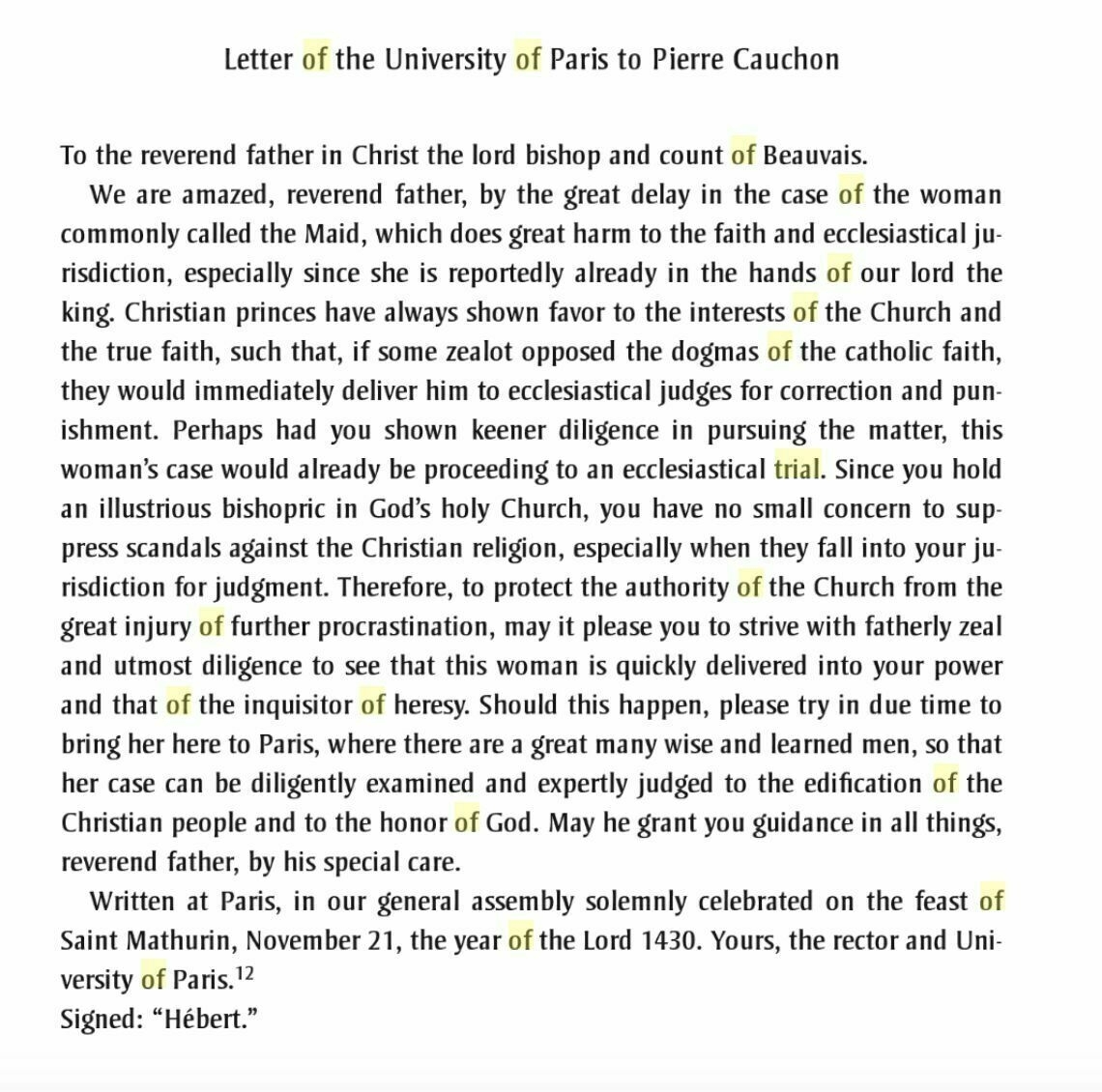
Emails today are like automobiles from say, 1915 to 1920 or so. The design hearkened back to the shape of a carriage made to be pulled by horses.
Except for the subject line, an email is still shaped like a physical letter. If the “sender” field contains your name, why add a letter-like closing? If the email is delivered to an addressee, why is there a need for a salutation? In the 12th century, salutations were long and complicated, but by the 19th they had become formulaic and meaningless–unless a variation from the norm was a specific effort to convey a special meaning.
Drop the date, salutation and closing. They are not needed. By the time automobile design reached the 30’s and 40’s, the need to mimic the design of the horse-drawn carriage was fading fast and by the 50’s was gone entirely.
Perhaps we’ll see similar innovations in the future.
Budgeting Litigation
Jan 23, 2025
Few companies—especially those surprised by litigation—have a litigation budget. They don’t realize how expensive the judicial system can be. Company execs believe that litigation is but an annoyance until their defender passes a proposed budget for a quarter million dollars across the conference table at the initial consultation.
Even a sophisticated client has never taken CivPro1 so much of what you say is gibberish. It’s like a physician presenting treatment alternatives where you haven’t even read the Wikipedia page. Maybe there’s a Reddit comment that applies to your situation, but probably not.
It is extremely difficult to budget litigation because you’re playing just one side of the board. The response to a complaint turns out to be, not an answer, but a motion attacking service, followed by a motion to dismiss. This is followed by a motion for sanctions. Only much later do you get the defendant’s answer. Then you’re served with 500 requests to admit. Not 25, nor 50 nor even one hundred. 500. Get in line to park at the courthouse.
Include a provision so that “extra costs extra.” Otherwise, your carefully planned budget will fly out the window at the first encounter with your opponent. As von Moltke noted, “no plan survives first contact with the enemy.”
One Thousand Tons of Chicken
Jan 22, 2025
It is a lot easier to steal chicken if there’s no chicken to steal.
Hunter Biden Laptop Story Sponsors Stripped of their Clearances
Jan 22, 2025
21 January 2025
Trump just issued an executive order stripping the security clearances of the 50 or so who signed the letter saying that the Hunter Biden laptop story was Russian disinformation. I assume that includes (text redacted).
I don’t know what the rules are with respect to a clearance when you’ve left a granting agency. In Panama, I had a blue (Confidential) clearance. I don’t believe I ever had a red (Secret) clearance. Before Panama, I had a Top Secret clearance, but the granting agency never told me that I had been given that clearance.
In the Noriega case and one other case I was offered Top Secret clearances but I turned them down. That pissed everyone off, but that’s another story. I can’t believe I’d be bound by that uncommunicated clearance, but who knows? I did send my Hotel Arbez piece to the CIA for clearance–I didn’t want to end up like John Kiriakou.
Let There Be Strife
Jan 19, 2025
Lawyers: today and every day, say the non-denominational lawyer’s prayer:
“Raise up dissension amongst thy people; let there be strife.”
The Nicaraguan Route
Jan 17, 2025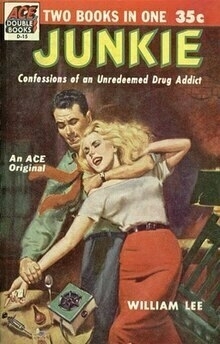
I worked for the Panama Canal Commission during the “transition period,” from 1981 through 1985. For the first two years the Canal Zone district court was still open. I was the last lawyer admitted to the Canal Zone bar.
I did a lot of reading about Canal history during those times. The Nicaraguan route was a possibility that was seriously discussed in the early 1900’s—the French effort in Panama had failed—and the presence of Lake Nicaragua was considered a plus. To convince his colleagues to turn away from the Nicaraguan route, a congressman brought a Nicaraguan postage stamp to the floor of the House. The stamp showed an active volcano and afterwards the Congress turned its attentions more seriously to Panama.
Today Nicaragua has its own problems: Daniel Ortega and the Sandinistas. To quote Gerry Adams, they’re still around, you know. In Panama I worked with George Rivas, who had been the translator for William Stewart, the ABC News reporter who was shot by one of Somoza’s National Guard soldiers. George was a Jehovah’s Witness from Louisiana. In Nicaragua he met and married his wife, Cristina. She had been involved with the Sandinistas herself.
After Nicaragua, he moved back to New Orleans so Cristina could learn English. The Canal had a procurement office at 4400 Dauphine Street. George then got a job in my office in Panama and stayed after I left. It was around this time that George broke up with Cristina. Cristina took this badly.
The split was theatrical: George fell in love with a Panamanian stripper who worked at the same dive written about by William Burroughs in his novel Junkie. After shooting his wife, Burroughs headed south and spent some time in Panama before continuing on to Colombia where he experimented with ayahuasca, said to be a therapy to cure heroin addiction.
Cristina saw her husband and his new friend sitting in his car at the Balboa train station, a place where trains then appeared only twice each day. The discovery upset her. She drove into the station, accelerated and rammed her husband’s car from behind.
It is a bad idea to fight with your wife; it is a worse idea to fight with your wife when she has military training provided by a guerrilla army that successfully overthrew a government.
The Panamanian Defense Forces, then under the command of General Noriega, responded. The Zonians took Cristina’s side even though she was a newcomer and neither Panamanian nor American. Even the Witnesses had had enough and excommunicated Ted. He told me that he was confident he would someday be re-admitted to his faith and he did achieve this much later.
Cristina must have shared her military credentials earned during the war to overthrow Tacho because the Defense Forces did nothing and let her go. Eventually George divorced Cristina, resigned and moved to Miami. There he got a job in City Hall.
I was in Miami from 1985 to 2001, before I made the fateful decision to work in Saudi Arabia. There I saw George only twice. Back in the US, George married an FBI agent. I suppose it would have been awkward for us to socialize together as his new wife was working hard to put my clients in jail.
George then moved back to New Orleans, where he now works for the park district. I got his email from their web site and put him on the mailing list for my A Brief Unpleasantness pandemic newsletter from Bahrain, but I never heard from him.
From him and Cristina I learned a good deal about the war in Nicaragua. When I left Panama in 1985, the Contra war was hot. And Noriega? To quote an LA newspaper, He was our guy.
